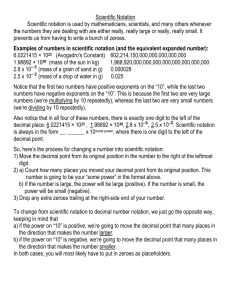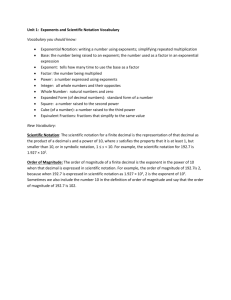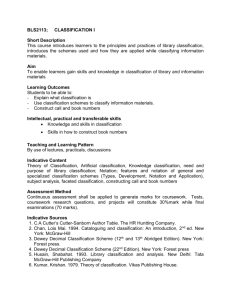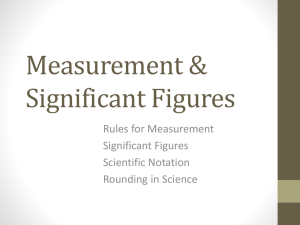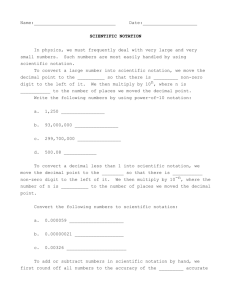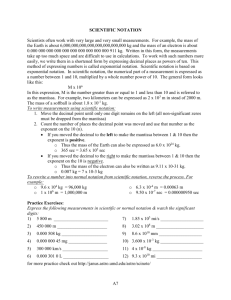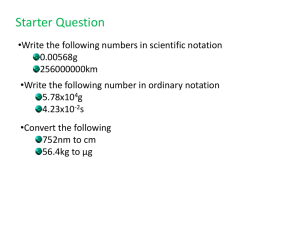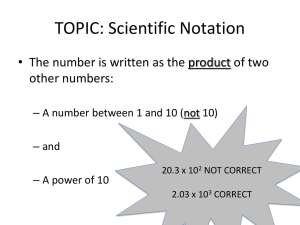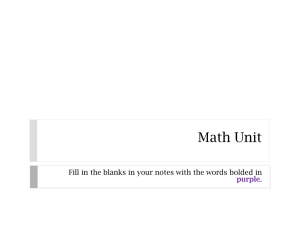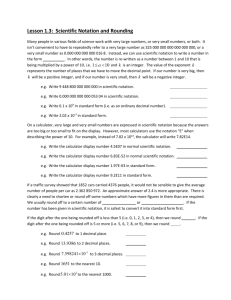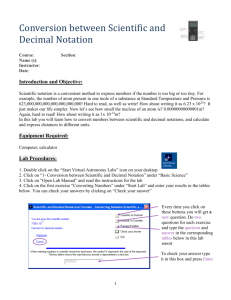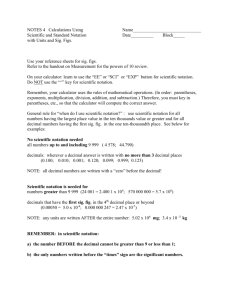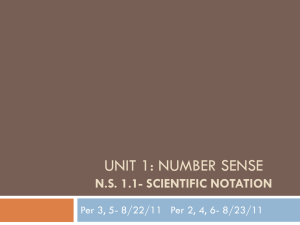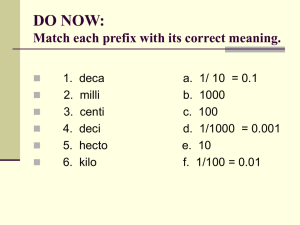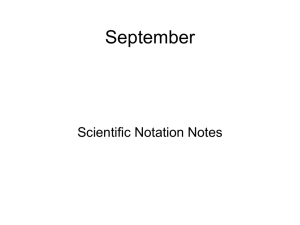Aim: How can we express very large and very small numbers easily?
advertisement
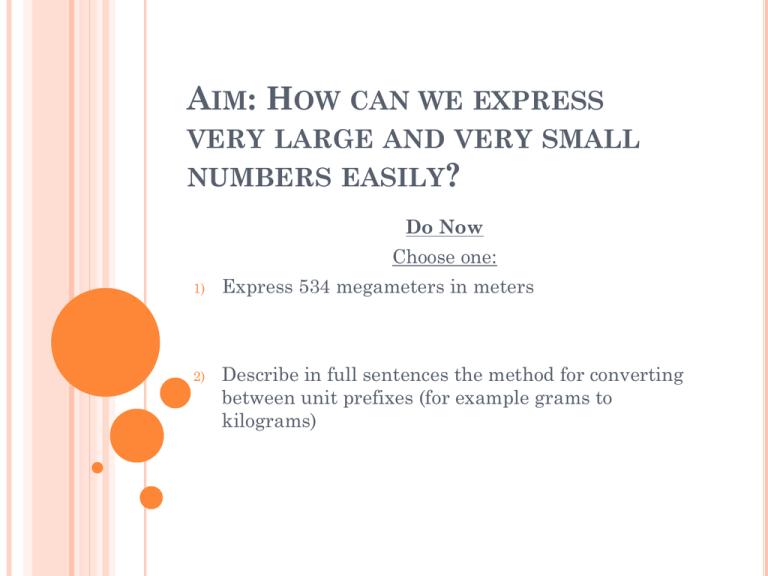
AIM: HOW CAN WE EXPRESS VERY LARGE AND VERY SMALL NUMBERS EASILY? Do Now Choose one: 1) Express 534 megameters in meters 2) Describe in full sentences the method for converting between unit prefixes (for example grams to kilograms) BIG AND SMALL NUMBERS Do you know this number: 300,000,000 m/sec? It’s the speed of light! What about 0.00000000000000000000000000167 kg? It’s the mass of a single proton. SCIENTIFIC NOTATION Just like a standard system of units makes measuring easier, using a standard system to express large and small numbers makes doing calculations easier. We call this system Scientific Notation. SCIENTIFIC NOTATION Scientific Notation involves using powers of ten to represent the excess zeros. Move the decimal all the way so it is behind the first significant digit So the speed of light (300,000,000 m/s) is written as 3.0 x 108 m/s SCIENTIFIC NOTATION RULES For large numbers, put the decimal after the first digit. That will be your coefficient. For example 123,000,000,000 Count how many places you had to move the decimal. That will be your power of 10. We also call this the order of magnitude. Write it in Scientific Notation form: 1.23 x 1011 SCIENTIFIC NOTATION RULES For small numbers, put the decimal behind the first non-zero digit in the decimal. Again, count how many spaces you moved the decimal. That is your negative exponent or order of magnitude. For example: .00000000139 is 1.39 x 10-9 PRACTICE PROBLEMS – TRY ON YOUR OWN 3 5.3 10 6.34 10 5 0.0000514 = 1,630,000 = MATH WITH SCIENTIFIC NOTATION When multiplying numbers in Scientific Notation: Multiply the coefficients (front numbers), keep the 10 and add the exponents. 4.0 x 105 * 2.0 x 106 = ??? When dividing numbers in Scientific Notation: Divide the coefficients (front numbers), keep the 10 and subtract the exponents. 4.0 x 105 / 2.0 x 106 = ???


